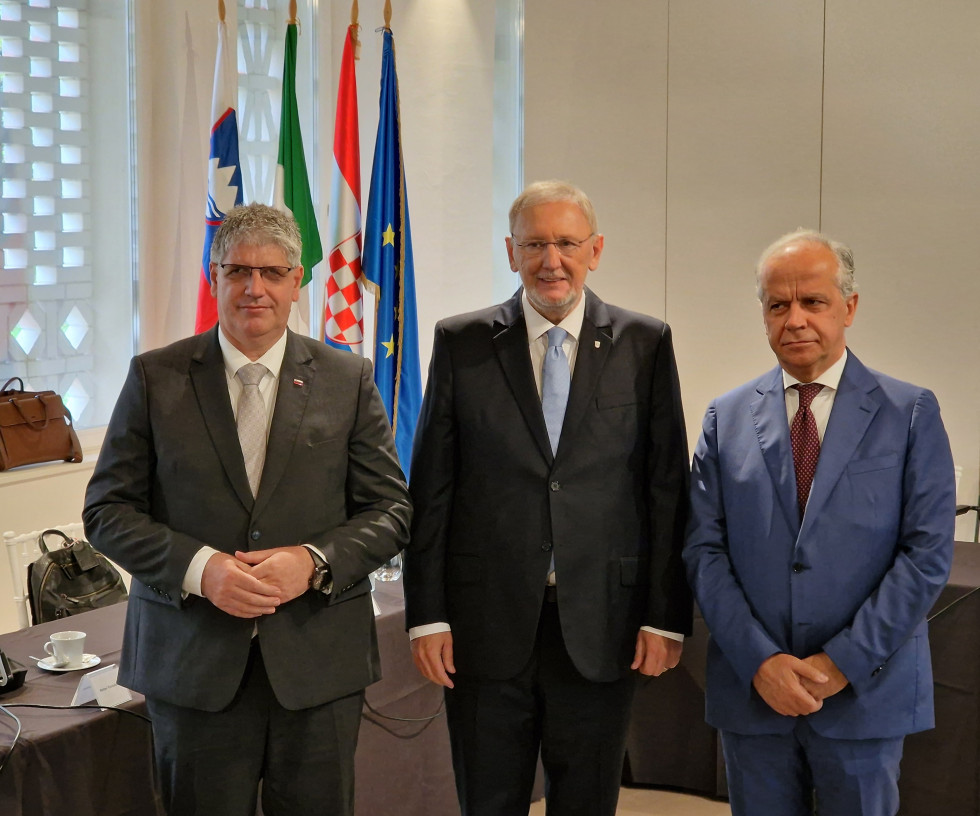Trilateral Meeting of the Croatian, Italian and Slovenian Ministers of the Interior

Interior Ministers Boštjan Poklukar, Davor Božinović and Matteo Piantedosi | Author Ministry of the Interior
Following the meeting, Minister Poklukar stated that the trilateral cooperation is proving to be effective on both political and operational levels among the police forces of the three countries. This initiative by Croatia, Slovenia and Italy is significant not only for these countries, but also for the broader region and within the framework of Council of the European Union.
At the meeting, Minister Poklukar outlined Slovenia's efforts in managing illegal migration and the actions taken by Slovenian police to combat people smuggling networks. Although migration pressure along the Western Balkan route has generally decreased this year compared to the same period in 2023, the data still highlight the continued attractiveness of the section of the route passing through Bosnia and Herzegovina and Croatia. This is reflected in the high number of unauthorised crossings of the internal Schengen border between Croatia and Slovenia. The majority of these crossings involve Syrian, Afghan, Turkish and Moroccan nationals.
Up to 6 October 2024, Slovenian police have dealt with 390 criminal offences (compared to 265 in the same period last year) and arrested 434 suspected people smugglers (427 foreigners and 7 Slovenian citizens) and 2,401 migrants. The majority of the suspects were citizens of Ukraine and Romania.
Minister Poklukar expressed satisfaction with the report on the activities of the Zebra Operational and Tactical Group in combatting people smugglers, noting that Italy’s participation made the group even more effective. He stated that this is the right approach and the appropriate response to the lucrative business of smuggling people through the Western Balkans to target countries in the European Union.
The ministers also discussed the European Border and Coast Guard Agency's agreement with Bosnia and Herzegovina, which is crucial for the Agency's operations in Bosnia and Herzegovina regarding border management and the prevention of unauthorised border crossings.
In addition, the ministers plan to address an initiative to the European Commission, urging the EU to develop an effective solution regarding the visa policy of the Western Balkan countries. The goal is to align these policies with those of EU countries, ensuring that airports in the Western Balkan region do not become hubs for illegal migration into the European Union.
The ministers also reviewed the situation in the Middle East and Ukraine, also closely monitoring developments related to terrorism and illegal migration. They discussed the implementation of the Pact on Migration and Asylum and the functioning of the Schengen area. The ministers reaffirmed their support for the accession of Romania and Bulgaria to the Schengen area by the end of the year.

